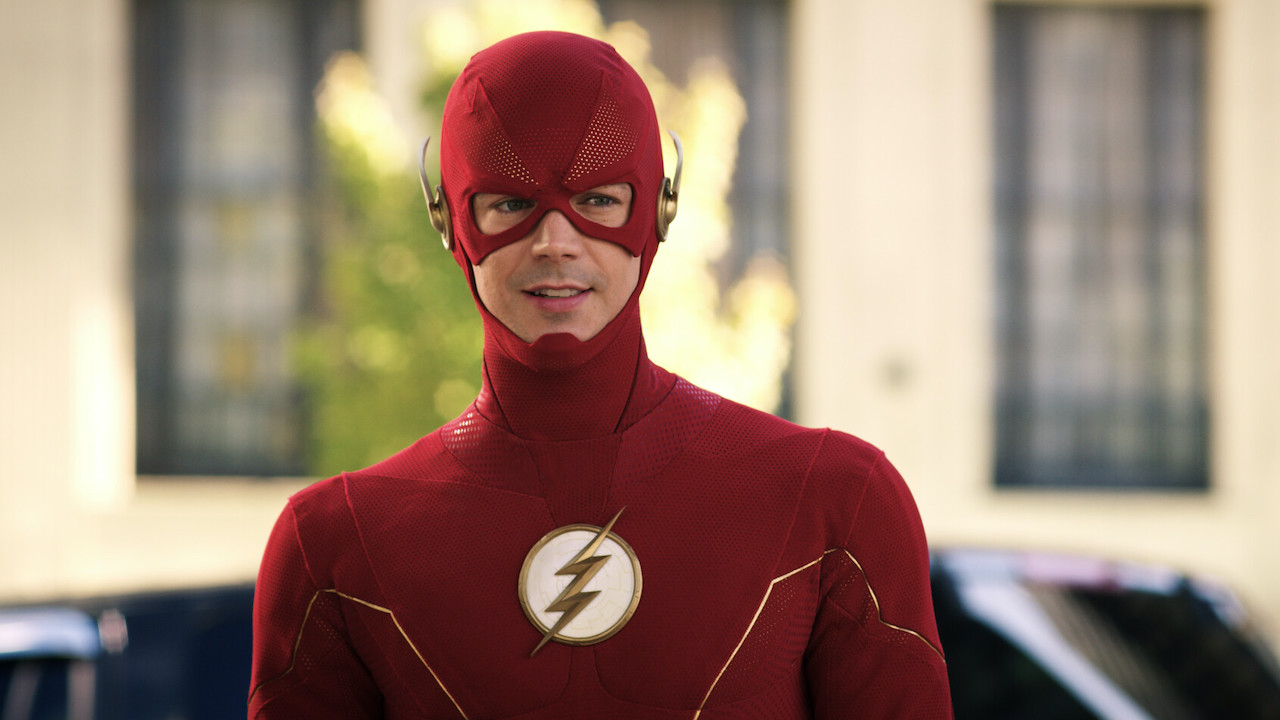The Flash's Grant Gustin Revealed 'Full Circle' Ending He Wanted For Barry, And Why He's Glad It Wasn't Used
The Flash's endgame could have been very different.

Warning! Spoilers ahead for the series finale of The Flash, “A New World, Part Four.” Read at your own risk!
The The Flash's series finale has come and gone, marking the end of The CW's Arrowverse era. There were technically endless possibilities for how the series would come to an end after nine seasons, but fans got to see Barry and Iris finally welcoming Nora to the world, with Barry sharing his speed powers amongst a group of new heroes. However, that wasn’t the only idea that was bounced around by the creative team, as star Grant Gustin recently revealed.
Grant Gustin wrapped filming on The Flash in April, and it was just a month later when the finale aired for fans. While the series’ ending seemed to be a solid way to maintain a happy ending, considering what the team has been through, Gustin told Entertainment Weekly about a fan theory that caught his interest, and how he wanted that to be the ending, but showrunner Eric Wallace was set on the final version:
It was a fan theory I saw online about Barry sacrificing himself to the Speed Force and becoming the lightning bolt that struck him in this full-circle moment. I thought it was cool, and I remember I talked to Eric about it, and he was really set on Barry and Iris having a happy ending. He didn't want to see Barry have a hero's death the same way Oliver did.
If Barry had sacrificed himself to the Speed Force, the ending would have obviously been very different, from the tone to the aftermath in Central City and beyond. He would have sacrificed himself to save the world, but it would be at the cost of his family, and with Iris being pregnant, it would have changed that storyline as well. Not to mention if Barry had sacrificed himself, their second child, Bart, would have never been born. Luckily, Eric Wallace came through and did not want to change the ending, even if it made for a full-circle moment.
One's mileage will vary as far as whether Eric Wallace was right in not moving forward with Grant Gustin’s original idea, but Gustin himself ended up being glad it wasn’t used. The ending that made the cut was a positive conclusion that gave the various Team Flash members a brighter future, whether it was together or apart. Plus, Barry’s hypothetical sacrifice would have mirrored a plot device that was already used for Stephen Amell's Arrow hero Oliver Queen, and Gustin realized he didn’t want it to happen that way. In his words:
It would've taken away from Oliver's sacrifice if we also had to see Barry make that same sacrifice at the end of Flash, because Oliver sacrificed himself for Barry and for the other heroes to continue. Looking back on this, I'll really appreciate that that's how Eric wanted to finish things. After everything that we've all been through and how consistent Barry and Iris were as a couple, it finishes with them being happy and starting a family and Team Flash moving into the future together. I think it was the right decision and fans will enjoy that.
When Oliver Queen sacrificed himself in the “Crisis” crossover, it was a highly emotional affair that marked the beginning of the end for the lineup of Arrowverse dramas. Barry had survivor’s guilt, feeling like he should have tried to do something to save Oliver, which in turn motivated him to do better. Barry sacrificing himself for the Speed Force after Oliver sacrificed himself for Barry, Kara, and the rest of the world really would have upended things. This way, Barry gets his happy ending and gets to keep Oliver’s legacy alive.
The Flash ended by introducing comic characters Avery Ho, Jess Chambers, and Max Mercury, but there's no telling whether or not a potential spinoff will happen, considering The CW is shifting entirely away from superhero shows. So fans will just have to keep an eye out and hope that this isn’t the complete end of the small screen's Scarlet Speedster. In the meantime, check out the 2023 TV schedule to see what other premieres to look forward to.
Your Daily Blend of Entertainment News

Passionate writer. Obsessed with anything and everything entertainment, specifically movies and television. Can get easily attached to fictional characters.
